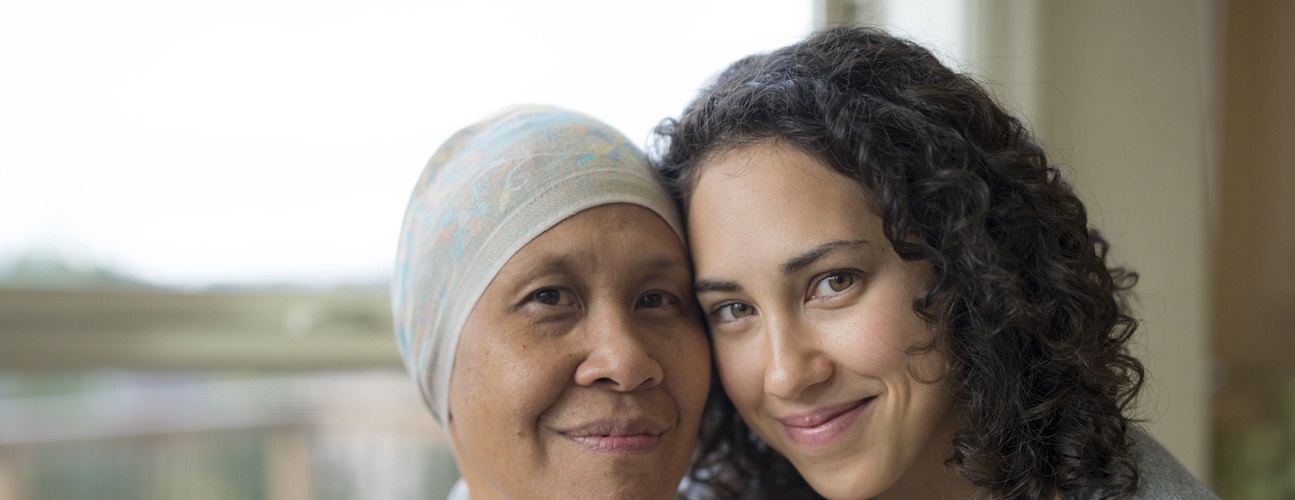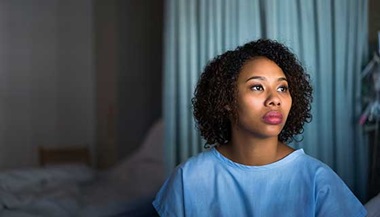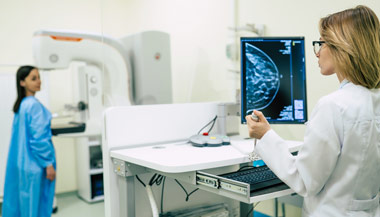Inherited Cancer Risk: BRCA Mutation
Can you inherit risk for breast cancer? Sometimes. Everyone has two types of breast cancer (“BRCA”) genes in every cell of their body. When functioning properly, BRCA1 and BRCA2 repair DNA, keep other genes healthy, and prevent cancerous changes in the cells.
When a mutation damages either of these genes, the person’s risk of cancer increases. Inheriting damaged copies of the BRCA1 or BRCA2 genes can increase the risk for breast cancer and ovarian cancer in women and the risk for breast and prostate cancer in men, as well as other cancers.
Here is what you need to know about genetic factors in breast cancer, who may be at risk and how people with BRCA mutations can work with their doctors to guard against cancer.
BRCA Mutation: What You Need to Know
- BRCA gene mutations can occur in women and men and be inherited by their biological children.
- Men with the mutation are more likely to be silent carriers; women are more likely to develop cancer.
- BRCA1 and BRCA2 account for about half of the families with an identifiable genetic cause of inherited cancers. Other inherited breast cancers are related to less common gene mutations, such as PALB2, ATM, CHEK2, CDH1, STK11, PTEN, TP53 and NF1.
- Getting tested and working with your doctor on preventive steps can lower your cancer risk, even if you are BRCA1- or BRCA2-positive.
BRCA1 vs. BRCA2
What is the difference between these two cancer genes? Whether a mutation occurs in the BRCA1 gene or the BRCA2 gene can influence a person’s vulnerability to particular types of cancer.
For instance, a mutation in the BRCA1 gene is associated with an increased risk of breast cancer, including triple-negative breast cancer, which can be aggressive and challenging to treat. Men with BRCA2 mutation have a 6% chance of experiencing breast cancer sometime in their lives, compared to a 1% lifetime risk for men with a BRCA1 mutation.
Are there symptoms of BRCA gene mutation?
No, there are no specific symptoms of breast cancers caused by a BRCA1 or BRCA2 gene mutation, but your doctor may recommend a test and appropriate screenings if you have risk factors. It helps to know whether or not you carry a mutation, so if cancer does occur, it can be diagnosed early.
High Risk Assessment and Genetic Testing at Johns Hopkins
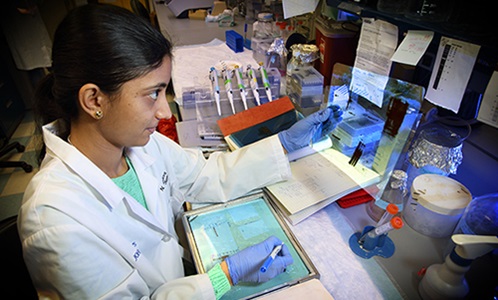
The Johns Hopkins Kimmel Cancer Center offers genetic counseling and high risk assessments for patients with a personal or family history of breast and ovarian cancer.
Risk Factors for BRCA Gene Mutation
Who should get tested for BRCA1 or BRCA2 mutation? You might be more likely to be carrying one or the other if you or a relative have:
- Breast cancer diagnosed before age 50
- Cancer in both breasts
- A relative with a known BRCA mutation
- Male breast cancer
- Ovarian cancer or cancer of the fallopian tube or primary cancer of the abdominal lining (peritoneum)
- Triple-negative breast cancer
- Breast cancer occurring more than once
- Both breast and ovarian cancer
- Breast cancer or ovarian cancer at any age, AND Ashkenazi Jewish ancestry (Central or Eastern European)
Diagnosis of BRCA1 and BRCA2 Mutation
Getting tested for BRCA and other gene mutations may be simpler than it used to be, especially if your doctor has access to newer genetic tests that use a saliva sample, instead of a blood sample.
Once surgeons and oncologists determine whether or not a patient’s cancer is related to a specific gene mutation, such as BRCA1, BRCA2 or another type, it’s easier to plan therapy.
New Treatment for BRCA-Related Breast Cancers
Treatment for BRCA1 and BRCA2 mutation breast cancers is advancing. Olaparib (sold under the brand name Lynparza) is a newer medication for the maintenance treatment of BRCA-mutated cancer in adults. It is a type of drug called a PARP inhibitor, which limits the action of an enzyme called ADP ribose polymerase, which is involved in DNA repair. Other medical therapies are also in development that may address BRCA mutation-related cancers.
What is my cancer risk if I test positive for a BRCA mutation?
It is high. Having a BRCA mutation means you have a likelihood of 45% to 85% for developing breast cancer in your lifetime, along with a 10% to 46% chance of ovarian cancer. The probability of breast cancer among the general population is about 12%. Ovarian cancer is rarer, affecting less than 1% of the general U.S. population.
I tested positive on the BRCA test. What now?
For patients diagnosed with a BRCA1 or BRCA2 gene mutation, careful, frequent and regular surveillance with their doctors can safeguard their health. At Johns Hopkins, screening for such patients starts when they reach age 25, with yearly MRIs to look for any signs of cancer, and mammograms when the patient reaches age 30.
For BRCA-positive patients who have completed childbearing and breastfeeding, prophylactic (preventive) mastectomy is discussed. Depending on the patient’s specific mutation and other factors, this isn’t always necessary. When the patient reaches age 40, surgery to remove the fallopian tubes and ovaries (salpingo-oophorectomy) is also considered, since the risk of ovarian cancer is so high.
I have tested positive for a genetic mutation. Should my children be tested?
Most of the cancers associated with genetic mutations affect adults. TP53, a rare mutation, is an exception: If you find out you are carrying a mutation of this gene, it may warrant a discussion with your child’s pediatrician, since it raises the risk of certain childhood cancers.
For parents carrying other mutations that aren’t likely to cause cancer in children, a conversation can — and should — take place when the kids are older and can make their own choices about their care.
A Rational Approach to Gene Mutations and Cancer Risk
Not all genetic cancer risks are the same. Some genetic mutations increase the likelihood of cancer dramatically; others, only by a few percentage points. These variations are important for doctors to understand, so they can work with the patient on a rational strategy for staying well.
Breast Cancer Treatment at Johns Hopkins
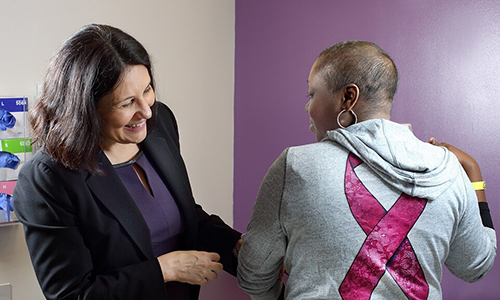
The breast cancer program at Johns Hopkins is made up of a diverse group of nationally recognized specialists in breast cancer research and treatment.

